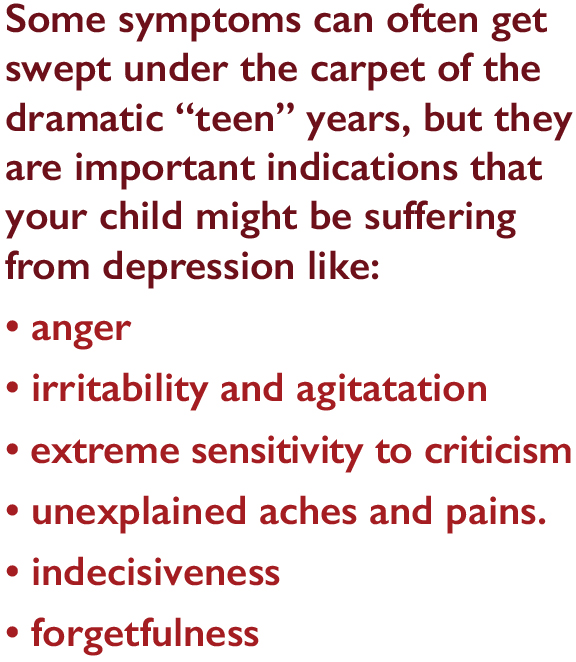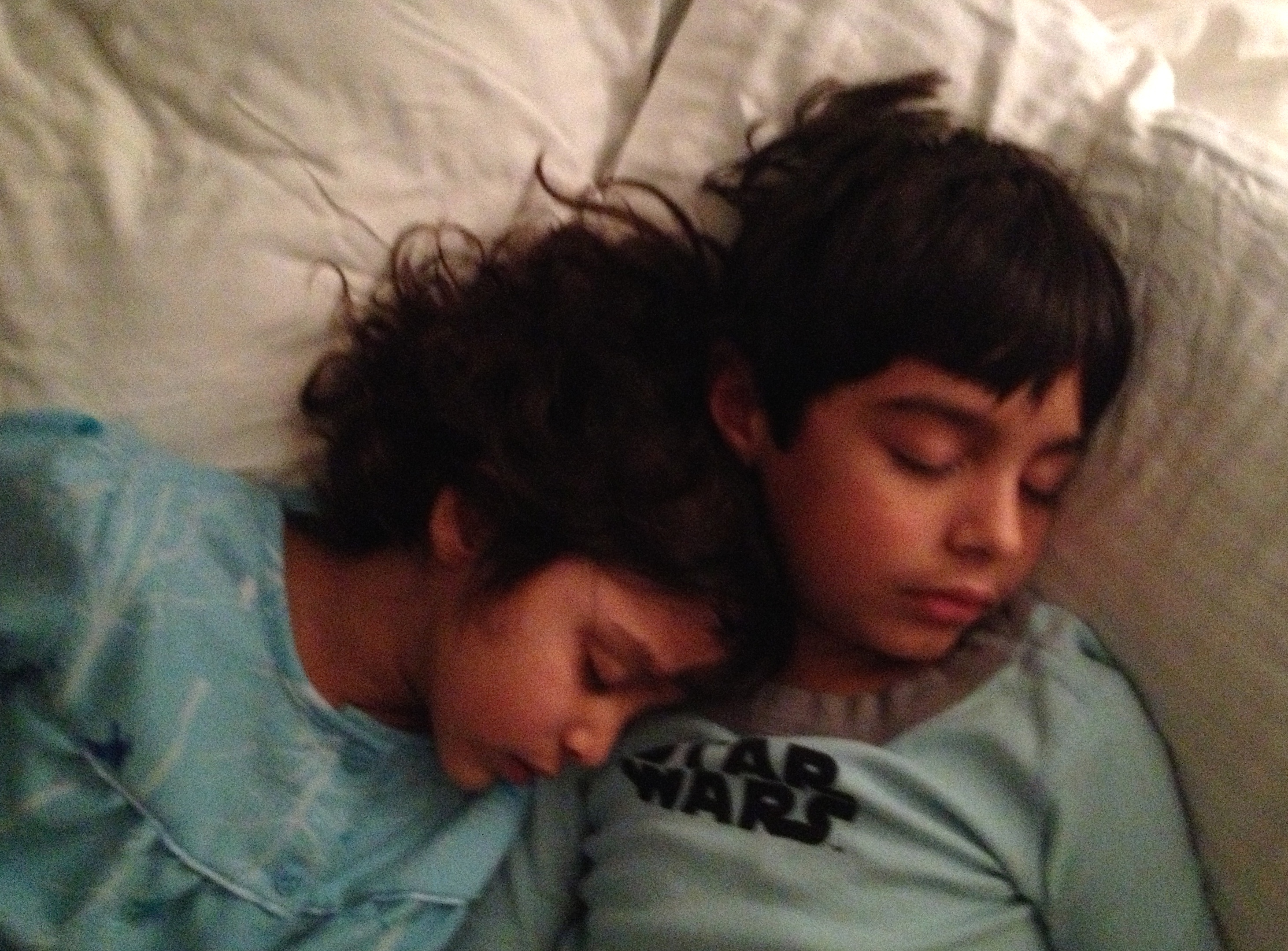Teen Depression Might Not Look Like You’d Expect
The dreaded teen years can be a trying and tumultuous time for both the adolescent and the adults in their lives. When a parent watches their once happy-go-lucky child transform into a moody teen, it can be a upsetting and often bewildering. Although adults expect teens to act moody, sometimes the mood changes can indicate a deeper-rooted problem, and we often overlook these symptoms as we chalk it up to the stage of adolescence.
 As a psychologist, it amazes me how much emphasis we as parents put into the physical health of our children and how the mental health of our children can get overlooked. Think about it … how much time do you spend planning and attending “activities” and how much time do you spend helping your child understand what is going on in their mind and in their emotional life? Emotions are definitely more challenging than activities and I can fall victim to the same trap.
As a psychologist, it amazes me how much emphasis we as parents put into the physical health of our children and how the mental health of our children can get overlooked. Think about it … how much time do you spend planning and attending “activities” and how much time do you spend helping your child understand what is going on in their mind and in their emotional life? Emotions are definitely more challenging than activities and I can fall victim to the same trap.
Unfortunately, adolescent depression is increasing at an alarming rate. Across the length of adolescence, 1 in 5 teens have experienced depression at some point in their teenage years. What people don’t always know is that depression can rear its ugly head in a very different way for teens than it does in adults. Adults often get sad and withdrawn; they have a hard time sleeping and lose their lust for life. Whereas, teens will experience anger and irritability, they get agitated and extra sensitive to criticism and oftentimes have unexplained aches and pains. Teens may be indecisive and forgetful when depressed.
These symptoms can often get swept under the carpet of the dramatic “teen” years, but they are important indications that your child might be suffering from depression. Adolescents do not always understand or express their feelings very well, so it is up to us to tune in to our teens to see if they might need more help. It is not unusual for young people to experience the “blues” or feel agitated at times, but if you are finding consistent and persistent irritation and anger, you might want to consider contacting a mental health professional for help.
Here are 5 tips for talking to your teen about their feelings:
1. Observe what is really going on–not what you want to see but the reality of your child’s behavior.
2. Choose the right setting. Make sure you’re alone and won’t be overheard by siblings. Car rides or before bedtime can be conducive to conversation.
3. Ask open ended questions and give your child space to talk without interruption (ex. I’ve notice you have been on edge lately, have you noticed? Can you tell me a little more about what is going on for you ….)
4. Find an activity that your child considers fun (even if it’s not your favorite thing to do). Somewhere in that fun experience is where they may start opening up.
5. Confide in your child. Share times where you have felt angry, irritable or sad. Your teen feel more comfortable about talking about their own struggles if you share yours.
 Dr. Shannon Albarelli is a clinical psychologist who specializes in treating a range of mental health conditions including depression, anxiety, post traumatic stress disorder, grief/bereavement and mood disorders. Her number one priority is to bring happiness and well-being to patient’s lives by restoring their mental balance. To find out more about her practice, visit www.dralbarelli.com
Dr. Shannon Albarelli is a clinical psychologist who specializes in treating a range of mental health conditions including depression, anxiety, post traumatic stress disorder, grief/bereavement and mood disorders. Her number one priority is to bring happiness and well-being to patient’s lives by restoring their mental balance. To find out more about her practice, visit www.dralbarelli.com
Find Out How Shannon Gave In To Serenity
10 Places EVERY Parent Hates…But Their Kids LOVE
Shannon’s Tips on How to Avoid Trickle Down Anxiety
Is Mindfulness in the Workplace Possible?!
Are Your Friends Having More Sex Than You?
Is chocolate good for you?
Find out the heart-healthy benefits of chocolate.

Should You Sleep with Your Kids?

 Find Out Why You Should Add Pumpkin to Your Diet!
Find Out Why You Should Add Pumpkin to Your Diet!

























